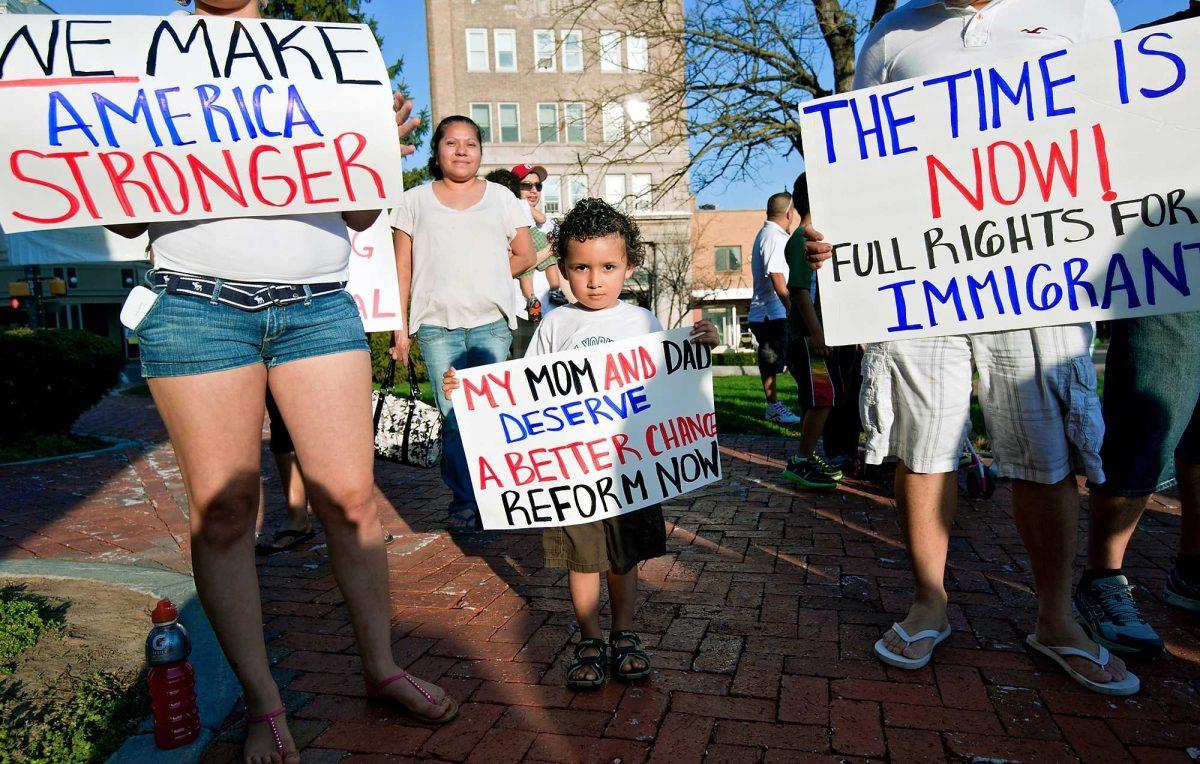A sense of actually wanting to do something has finally captivated Congress, with a movement toward comprehensive immigration reform increasing considerably in the past few months.
Indeed, a bipartisan “Gang of Eight” senate group — a group of four Democratic senators and four Republican senators — released a blueprint for immigration reform Jan. 28.
The following day, President Barack Obama gave a speech outlining the White House’s plans for immigration reform.
The thesis of both proposals centers on the need to provide legal status, in addition to a path to full citizenship, for the 11 million undocumented immigrants living in the country.
Many Congressmen, however, are not in favor of even granting legal status — let alone a chance for full citizenship — to undocumented immigrants.
Other lawmakers have expressed a desire to draft legislation that would stop just short of giving citizenship for the 11 million undocumented immigrants, instead calling for a “middle-ground” option: To leave undocumented immigrants in a status of that below a legal citizen, yet above that of an illegal alien.
What the argument really should come down to, though, is the overwhelmingly positive economic benefits our nation would experience as a whole from a reform that grants legal status and a path to full citizenship.
As a recent study by the Center for American Progress illustrates, legal status and a path to full citizenship for undocumented immigrants will result in considerable economic stimulus with respect to “growth, earnings, tax revenues and jobs.”
A key point in the Center’s study is that the absence of reform — or reform that classifies the undocumented in a middle-ground, sub-citizen category — will result in the United States not benefiting from any of the potential profits our nation will likely realize from Gang of Eight immigration reform package.
More concretely, the Gang of Eight’s immigration reform package would bring about three huge economic gains over the next 10 years for the United States: An $832 billion increase in gross domestic product, a $470 billion increase in the income of all Americans and $109 billion of “extra” tax revenue, the Center’s report indicates.
But doesn’t this make sense?
Currently, most undocumented immigrants work and live in the United States just as normal citizens do, yet they consume public goods without paying taxes.
Simply put, they are the beneficiaries of our hospital systems, police and fire departments and public school systems, despite not having to pay for them.
In addition to this, undocumented workers are severely restricted with respect to what types of jobs they can pursue. As a result, the vast majority works in low-skilled, low-wage jobs.
The logic behind immigration reform is straightforward: Legal status and citizenship will enable undocumented immigrants to produce and earn significantly more than they do when they are sitting on the economic sidelines.
The resulting productivity and wage increases will provide considerable stimulus to the economy because immigrants are not merely workers — they are also consumers and taxpayers.
Immigrants will spend their increased earnings on products such as food, clothing, electronics, cars, furniture, etc.
This increased spending will, in turn, stimulate aggregate demand for goods and services, which fosters the creation of jobs and grows our economy.
With economic uncertainty looming in the United States, as well as abroad in China and Europe, the case for comprehensive immigration reform is obvious: The sooner, the better.





